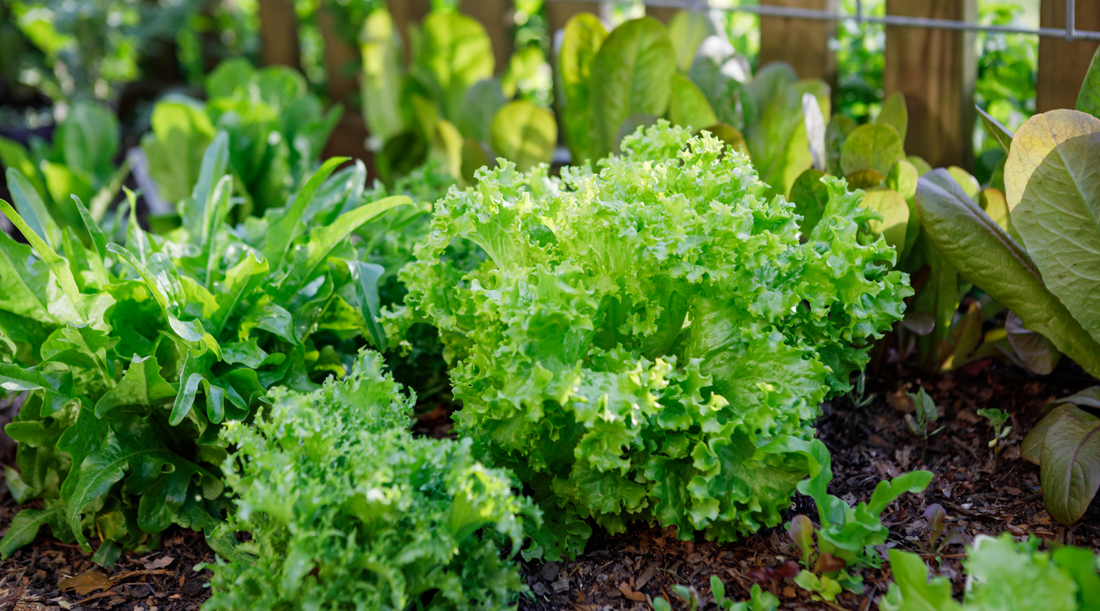
20 Tips for Creating an Eco-Friendly Garden: Green Gardening
Share
Welcome to our complete green gardening guide. Let's explore the world of eco-friendly gardening and learn 20 tips to help you cultivate an eco-friendly garden. Composting kitchen trash, recycling and proper watering will increase your garden's health and productivity and also save and help the world.
Prepare to get dirty and enjoy green gardening, where every plant you nurture and every eco-friendly choice advances a sustainable future and green space.
What is Green Gardening and Its importance?
This is a method of gardening that focuses on preserving natural resources and promoting environmental health. It seeks to minimize the environmental impact by reducing harmful chemicals, conserving water, promoting biodiversity, and recycling garden waste.
Eco-friendly gardens are not only beneficial for the environment, but they also offer great value to local wildlife and your mental well-being. These gardens reduce carbon footprint, improve air quality, support biodiversity, and provide a soothing natural space for relaxation and inspiration.
20 Tips for Creating a Green Garden
1. Compost Your Waste:
Composting reduces the amount of waste going to landfills and enhances the soil texture with essential nutrients. Composting is a great way to recycle your food or vegetable waste and backyard waste like fallen leaves and other organic materials from your lawns like grass clippings. It boosts soil fertility and decreases the use of artificial fertilizers.
2. Plant Native Plants and Perennials:
Native plants are native to an area they are well-adapted to its conditions and provide food for wildlife. Therefore, they require less water and care and are expected to support local ecosystems better than foreign species. Unlike annuals that need to be planted yearly, perennials will return year after year, reducing labor and resources.
Additionaly planting native trees, shrubs, and understory perennials not only adds character to the landscape but also recovers lost green space. Reduce carbon dioxide while increasing oxygen.
3. Collect Rainwater:
Rainwater collection is essential for eco-friendly gardening. Because it lacks chlorine like tap water, ut's better for your plants and it's a cheap, easy way to conserve and lessen dependency on municipal supplies. A rain barrel or water butt or more advanced rainwater harvesting device can gather and preserve this important resource when nature offers it. Use it to irrigate your gardens during dry months. This decreases your environmental footprint and water bills and assures your crops get natural water even in droughts.
4. Use Organic Fertilizers:
Organic fertilizers sustainably replenish soil nutrients and nourish the soil ecosystem and plant health using compost, manure, or seaweed. Organic fertilizers slowly improve soil structure, water retention, and nutrient discharge. Their use is ideal for eco-friendly, sustainable gardening.
5. Plant More Trees and Shrubs:
Trees and shrubs provide habitats for wildlife, clean the ground and air, and provide shade which can lessen energy consumption. Trees are excellent additions to your backyard for summer shade.
6. Avoid Pesticides:
Both the environment and human health are vulnerable to the toxic effects of pesticides. Employ natural pest control methods like companion planting, attracting beneficial insects, using physical barriers, and homemade pest control instead.
7. Water Wisely:
Watering wisely is a crucial aspect of eco friendly gardening. It's about ensuring crops get the moisture they need while minimizing waste. Put in a drip irrigation system to save water and fertilize your plants at the same time.
Additionally, group plants by their water needs. Planting drought-tolerant species and those needing more water together can make watering more efficient.
8. Start Your Plants from Seeds:
Starting from seeds is an inexpensive way to green gardens and offers more plant alternatives than local nurseries. You can create your nursery and start growing your organic seeds to start your pesticide-free gardens. This method also reduces plastic usage from pre-grown plants in pots.
9. Create a Wildlife Habitat:
Eco-friendly gardening requires creating a wildlife habitat. Your garden may protect birds, butterflies, bees, and other helpful creatures by offering various plants, clean water, and safe shelter. This boosts biodiversity and the ecosystem health.
10. Use Solar-Powered Garden Lights:
These lights utilise solar energy throughout the day to illuminate your lawn at night, decreasing your need for electricity. Solar-powered lights reduce your carbon footprint, promote sustainability, and make your yard a green beacon.
11. Recycle and Upcycle:
Reuse plant pots, old containers, wooden crates, plastic bottles, or even shoes as planters. additionally you can use ice cream sticks as plant labels instead of buying commercial labels. This reduces waste and adds character to your garden.
12. Don't Use Gas-Powered Tools:
Gas-powered lawnmowers and leaf blowers pollute the air and noise, contribute to climate change through carbon emissions, and use fossil fuels. Choose manual or electric tools to reduce these effects. Bonus: quieter, more tranquil gardening site. Green equipment selection is essential to sustainable gardening.
13. Don't Use Plastic Grow Bags
Plastic bags may be convenient, but they add to plastic garbage, which takes hundreds of years to degrade and leaches dangerous chemicals into the earth. Plastic bag production uses non-renewable resources and creates greenhouse gases. Instead, choose fabric pots, which are breathable, sturdy, and typically recycled. These are more sustainable and improve root growth and plant health.
14. Maintain Healthy Soil:
Regularly test your soil's nutrient levels and pH to ensure it's healthy. Healthy soil leads to healthy plants that can better resist pests and diseases.
15. Invite Beneficial Insects
Not all bugs are pests! Bees, ladybugs, and other insects can pollinate plants and control pests. Plant flowers that have pollinators to attract these good bugs to your garden.
16. Cut Back, Plant less
When creating an eco-friendly garden, less is more. Reducing the number of plants in your garden lets you focus on each one and save water, fertilizer, and energy. Remember that a few well-kept plants survive better than a garden full of neglected ones. Cut back and plant less to let every garden plant thrive.
17. Go for Groundcovers:
Groundcovers are a great idea eco-gardening strategy, especially in October. As the temperature drops, these low-growing, spreading crops act as a ground cover, preventing soil erosion and moisture loss. They also outcompete weeds, so you'll spend less time weeding and more time enjoying your spring garden.
18. Mulch Your Garden:
As the growing season begins in April, mulch can maintain soil moisture, control soil temperature, and discourage weed growth, making your gardens a healthy. In September, a fresh layer of mulch may insulate your garden and protect your plants' roots from harsh winter temperatures. Decomposing mulch improves soil quality, reducing the need for synthetic fertilizers and excessive watering.
19. Avoid Peat
Peatlands are vital carbon sinks. Opt for peat-free composts and soil amendments to help conserve these important ecosystems.
20. Grow Your Own Food
Growing food is the foundation of eco- gardening. It lets you grow fresh, organic, and healthy food in your backyard, balcony, or windowsill, minimizing your dependence on unsustainable commercial agriculture. Growing your own fruits, veggies, and herbs eliminates pesticides and synthetic fertilizers from your produce.
Remember that simple actions make a great difference as we finish our eco friendly adventure. These 20 techniques prove that green gardening is more than simply aesthetics. Create a vibrant, sustainable garden that respects and values our earth.
Take the first step. Whether you're a seasoned gardener trying to be green or planting your first seed, your actions matter. Join us and let's develop green gardens that celebrate life, nurture biodiversity, and lighten our footprint on our wonderful world. Enjoy eco-friendly gardening!
